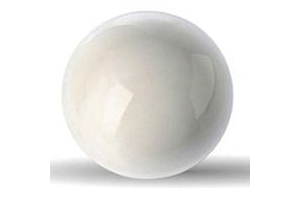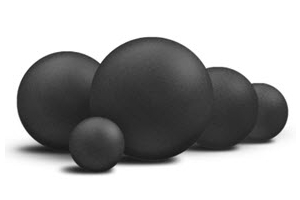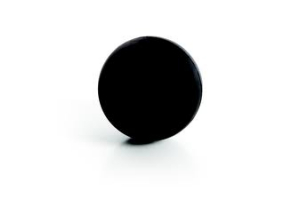You have an upcoming project and your design requires the inclusion of precision balls. There are many interesting and efficient applications for precision balls. Even though your project or application will require precision balls, you must first determine the type of ball that best suits your design requirements. Choosing the right ball material is critically important to your application process; this decision will affect the overall success of your project. Making the right choice is helpful in ensuring long product life and keeping your development costs low. Since there’s an abundance of precision balls on the market, we thought you could use some help narrowing your options. As a reliable industry professional, Precision Plastic Ball Co. is glad to share its knowledge with you.
Factors to Consider Before Choosing
You should be asking a lot of questions before making your final decision, such as: How long will the product be in use? Think of your project’s timeframe and consider what material will save you money in the long run. What types of exposure will it endure? You’ll need to make sure the material you choose is durable enough to withstand the intended application. Must it follow regulatory health/cosmetic guidelines? Health concerns are always important to designers—you’ll want to make sure your clients have a safe experience with the products so they’ll give you repeat business. What particular industry are you in?Your decision might change if you work in petrochemicals, chemical processing, or bearings and mechanical usage. Also, consider the applications for precision balls; typical applications include mechanical support, blasting/fracking, consumer products, and fluid handling.
Continuous Research is Key
Whenever you get a new piece of information, don’t feel like you have to trust it completely. Always try to research different sources, get different answers, and challenge that data from time to time. There are over 50,000 choices on the market for manufacturing grade plastics alone, so keeping your options open is a must. Use a healthy blend of tools to help inform your decision, such as the Precision Plastic Ball Material Application Table. The Material Application Table is useful for getting a sense of potential choices of precision balls, including: o Plastic Resin, which includes High Density Polyethylene (HDPE), Acetate, Acrylic, Low Density Polyethylene (LDPE), Celcon, Nylatron, Nylon, Phenolic, Polycarbonate, polypropylene, Polyvinyl chloride (PVC), Delrin (also known as Polyoxymethylene, a tough material with a very low friction coefficient) o High Performance Plastic, which includes Polyethylene (commonly called TPX), Tefzel, Torlon, Vespel,Polytetrafluoroethylene (PTFE), Polyether Ether Ketone (PEEK), o Glass Filled Plastic, which includes Nylon, Delrin, Polytetrafluoroethylene (PTFE) o Hollow Precision Plastic, which includes LDPE, HDPE, Polypropylene o Rubber Resin, which includes Natural Rubber, Polyurethane, Silicone, Ethylene Propylene Diene Monomer (EPDM), Neoprene o Alloy/Steel Precision, which includes Stainless Steel, Chrome Steel, Aluminum o Hollow Steel Precision, which includes Aluminum Bear in mind that we provide numerous ball materials in addition to plastic, though plastic is a core service offering. Just keep in mind that you don’t necessarily have to choose plastic.
Consult Material Suppliers
If you keep hitting roadblocks during your research, don’t be afraid to ask for the help of professionals—that’s why we’re here. Reach out to different manufacturers if you have a specific comment or question. The information you gain will be that much more valuable coming from industry specialists. Precision Plastic Ball Co. is capable of providing product and engineering consultation; contact us anytime at 847-678-2255. You can also request a custom quote from our website. We look forward to helping you find the right the product, but the ball is in your court—it’s up to you to make the best decision possible.





